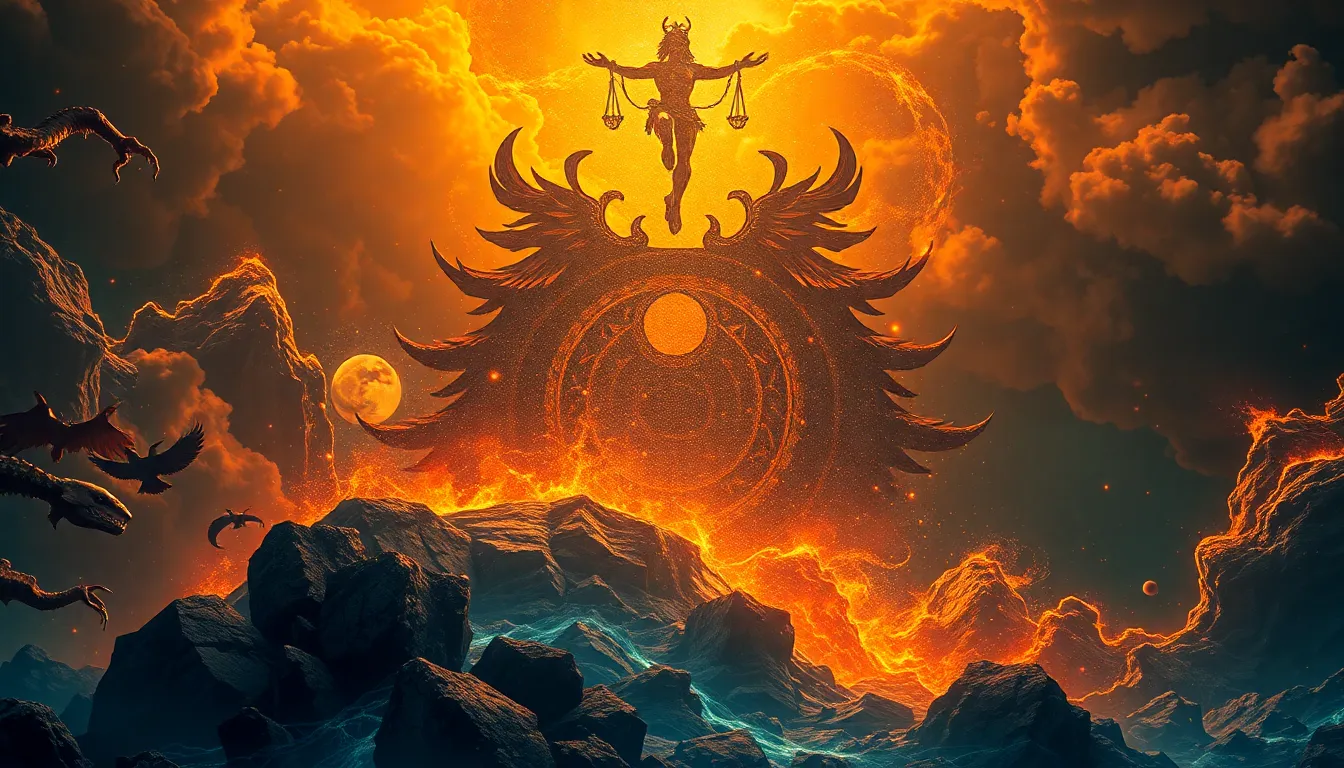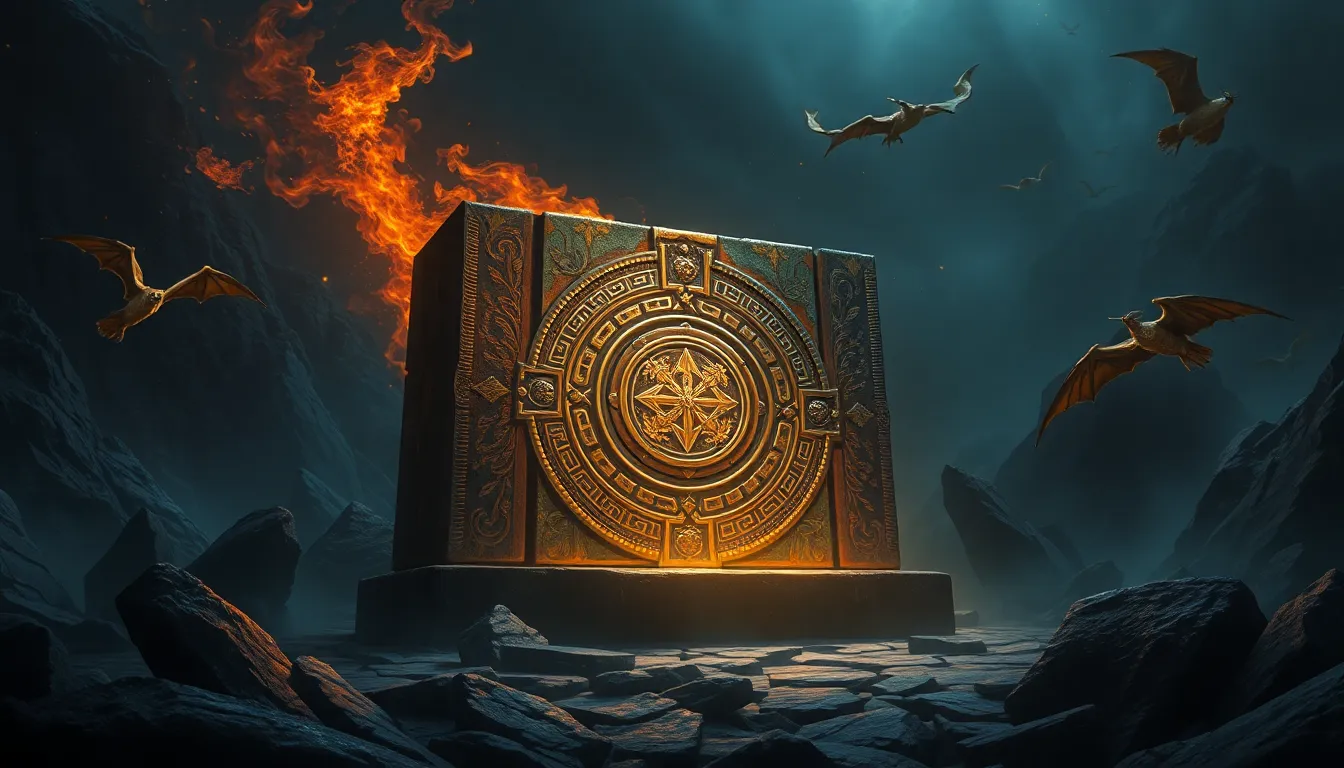The Quest for Knowledge: Myths That Enlighten the Mind
I. Introduction
Knowledge is the accumulation of facts, information, and skills that are acquired through experience or education. It plays a crucial role in shaping human life, influencing our decisions, beliefs, and interactions. Throughout history, myths have served as powerful vehicles of wisdom, offering insights into the human condition. This article aims to explore how myths contribute to our understanding of knowledge and the world around us.
II. The Nature of Myths
A. What constitutes a myth?
A myth is a traditional story that typically involves supernatural beings or events and is used to explain natural or social phenomena. Myths are characterized by their narrative form, symbolic meanings, and cultural significance.
B. Historical context and evolution of myths across cultures
Myths have existed in various forms throughout human history. From the ancient tales of Mesopotamia to the rich narratives of indigenous cultures, myths have evolved alongside human societies. They reflect the values, beliefs, and experiences of the people who tell them.
C. How myths serve as metaphors for human experience
Myths often represent deeper truths and universal themes that resonate with the human experience. They can serve as metaphors for life’s challenges, emotions, and moral dilemmas, allowing individuals to find meaning and understanding in their lives.
III. The Role of Myths in Ancient Civilizations
A. Myths in Mesopotamia: The Epic of Gilgamesh
The Epic of Gilgamesh is one of the earliest known works of literature, originating from ancient Mesopotamia. This myth explores themes of friendship, mortality, and the quest for immortality, providing insights into human nature and the pursuit of knowledge.
B. Greek mythology: Lessons from Prometheus and Icarus
Greek myths, such as the stories of Prometheus and Icarus, convey significant moral lessons. Prometheus represents the quest for knowledge through defiance, while Icarus serves as a cautionary tale about the dangers of hubris and overreach.
C. Myths from Indigenous cultures: The importance of storytelling
Indigenous cultures around the world have a rich tradition of storytelling through myths. These narratives are not only entertaining but also serve as vehicles for cultural preservation, moral education, and a deeper understanding of the natural world.
IV. Myths as Tools for Moral and Ethical Education
A. The moral lessons embedded in myths
Myths often contain moral lessons that guide individuals in their behavior and decision-making. They encapsulate values that are essential for societal cohesion and personal development.
B. Case studies: Aesop’s Fables and their teachings
- The Tortoise and the Hare: Teaches the value of perseverance and humility.
- The Boy Who Cried Wolf: Illustrates the consequences of dishonesty.
- The Ant and the Grasshopper: Highlights the importance of hard work and planning for the future.
C. The impact of myths on societal values and norms
Myths shape societal values by reinforcing cultural norms and expectations. They provide a framework for understanding right and wrong and influence the moral compass of communities.
V. The Psychological Impact of Myths
A. Carl Jung and the concept of archetypes
Carl Jung proposed that myths contain archetypes—universal symbols and themes that resonate across cultures. These archetypes help individuals understand their own experiences and emotions.
B. Myths as a means of exploring the unconscious mind
Myths can serve as a gateway to the unconscious, allowing individuals to confront their fears, desires, and inner conflicts. They provide a safe space for exploration and reflection.
C. How myths help individuals navigate life’s challenges
By relating to mythological narratives, individuals can find guidance and comfort in their struggles. Myths offer frameworks for understanding personal challenges and provide hope for resolution.
VI. The Intersection of Science and Myth
A. Myths that inspired scientific exploration (e.g., Daedalus and flight)
Many myths have inspired scientific inquiry and exploration. The story of Daedalus, for example, symbolizes human ingenuity and the desire to overcome natural limitations, which has parallels in the quest for flight.
B. The role of myth in understanding natural phenomena
Historically, myths have served to explain natural phenomena that were otherwise incomprehensible. They provided early humans with a framework to understand the world around them, from the changing seasons to celestial events.
C. Debunking myths: The relationship between myth and scientific discovery
As science has advanced, many myths have been debunked. However, this relationship is not purely antagonistic; myths can coexist with scientific understanding, offering cultural and emotional insights that science alone cannot provide.
VII. Modern Interpretations of Ancient Myths
A. The resurgence of interest in mythology in contemporary culture
In recent years, there has been a renewed interest in mythology within popular culture. Movies, books, and art often draw inspiration from ancient myths, reinterpreting them for modern audiences.
B. How modern media reinterpret and reshape traditional myths
Modern media often adapt traditional myths, reshaping them to address contemporary issues and values. This reinterpretation allows myths to remain relevant and accessible to new generations.
C. The relevance of myths in today’s societal issues
Myths continue to provide valuable insights into contemporary societal issues, such as identity, morality, and the human experience. They serve as a mirror reflecting our values and challenges.
VIII. Myths Across Different Cultures
A. Comparative analysis of creation myths from around the world
Creation myths offer fascinating insights into how different cultures understand the origins of the universe and humanity. For example:
- The Judeo-Christian Creation: God creates the world in six days.
- The Hindu Creation: The universe emerges from the cosmic ocean, symbolizing rebirth and cycles.
- The Indigenous Australian Dreamtime: Explains the connection between people, land, and spiritual ancestors.
B. The universal themes found in myths across cultures
Despite cultural differences, many myths share universal themes such as creation, heroism, love, and the battle between good and evil. These commonalities highlight shared human experiences.
C. Understanding cultural identity through myth
Myths play a crucial role in shaping cultural identity. They provide a sense of belonging and continuity, connecting individuals to their heritage and community.
IX. The Future of Myths in Knowledge Acquisition
A. The role of myths in education and personal development
Myths can serve as powerful educational tools, fostering critical thinking and creativity. They encourage learners to explore complex ideas and moral questions.
B. How technology is changing the way we engage with myths
In the digital age, technology has transformed how we access and interact with myths. Online platforms allow for the sharing and reinterpretation of myths, making them more accessible than ever.
C. The potential for new myths in a rapidly changing world
As society evolves, new myths may emerge to reflect contemporary values and challenges. These new narratives can help guide future generations in their quest for knowledge and understanding.
X. Conclusion
In conclusion, myths are not merely ancient tales but essential components of the quest for knowledge. They enrich our understanding of the human experience, provide moral guidance, and inspire curiosity and exploration. As we continue to engage with myths, both ancient and modern, we are encouraged to delve deeper into their lessons and insights, enriching our journey of discovery.



